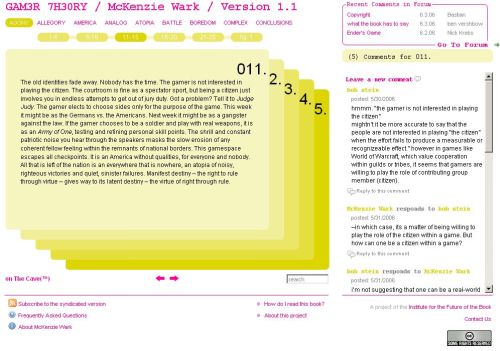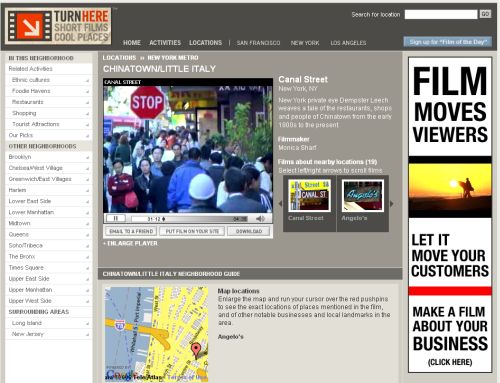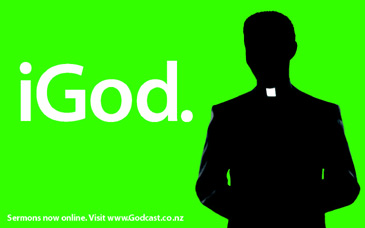von Roland Hachmann | Juni 8, 2006 | Blog, Digital Culture
Angela Merkel, Chancellor of Germany, has a video-podcast since today. Her first vidcast was FIFA Worldcup message, no surprise.

Now that has got to be a first. Or is there any other country whose Nr. 1 politician has a video-podcast?

The first time in a long time, that I actually really appreciate something my government has started!
Apparently, this will be a regular vidcast (or: „rather“ regular, as she said). Let’s see if the next one will actually have some more information other than a cheer for the worldcup.
One thing she did, though, in a very 2.0-ish fashion: she asked us for comments. She would like us to send her our opinions via email. I wonder if she will read out some of them during her next vidcast. If she does – and if she answers them informatively, then: wow!
von Roland Hachmann | Juni 4, 2006 | Blog, Digital Culture, Digital News
An interesting experiment by the organisation „Future of the Book“ and University Professor McKenzie Wark is the new book GAM3R 7H30RY

It’s completely web-based and the reader can flick through cards of content when reading the book. This way, the user can easily find content again, but the main benefit is that users can comment on specific parts of the book.
I still find reading long copy on the screen a little difficult, but the idea of having an interactive book is great. Just commenting on things can be difficult in the beginning:
it occurs to me that it would be really helpful to see an outline of the book. Not just the chapter titles you’ve got above the cards, but a more detailed outline. That way, your readers wouldn’t necessarily have to read every word before making a comment that might turn out to be premature.
von Roland Hachmann | Mai 31, 2006 | Blog, Digital Culture, Digital News
Well, the title is a little overpromising. Sofar, TurnHere.com only covers parts of the USA. But nevertheless, the idea is nice. and some of the films are really made will with a lot of effort by all the individuals. Just like this one here:

New York private eye Dempster Leech weaves a tale of the restaurants, shops and people of Chinatown from the early 1800s to the present.
von Roland Hachmann | Mai 27, 2006 | Blog, Digital Culture
iGod is The Voice of St Matthew’s – a Godcast for sermons, etc.
Sounds crazy, but then again: why not? There will, most likely, be a huge audience for these kind of podcasts. And for the church its an easy way to spread their message.

von Roland Hachmann | Mai 26, 2006 | Blog, Digital Culture
psfk has a short interview of Chris Anderson, author of „The Long Tail“ – a book which I am definitely goint to get.
Somehow I get the feeling that this is already part of Chris‘ promotion tour. Not that I blame him, in fact, I hope he will have a very good promotional campaign around his book. Because, as he says:
Many people have noted how ironic it would be if my book on niches becomes a hit. I can live with that 😉
What he writes about in his forthcoming book (at least from what I can guess from his blog) are quite fundamental things influencing our society these days and in the future.
His idea of the „long tail“ will be equally important as ideas such as the „tipping point“ or the „wisdom of the crowds„.
Yet, he describes a phenomenon which is, in a way, completely new to our civilisation, since it requires a certain technological and network infrastructure, that men didn’t have sofar.
This stands in contrast to the ideas of the other two book examples that came to my mind – those ideas were known of and relevant for some time, with the only distinction, that only now two writers of „The New Yorker“ had put down these psychological/sociological theories into everyday speak for the common hobby-intellectual (like myself).
von Roland Hachmann | Mai 26, 2006 | Blog, Digital Culture, Digital News
In April, ABC announced that some of their prime time shows will be available online the day after they first aired. Not for free, of course, they contain ads that you cannot skip. (This reminds me of the discussion that arose when bloggers found out that Philips is filing a patent for devices that won’t let you skip commercials.
This created a huge discussion in the last couple of week about the future of the (TV-) Networks in a world with perfect digital free distribution networks. Here and here, are two posts that discuss this.
Jeff Jarvis also writes an extensive Post on this topic and claims: Everybody’s a network:
And of course, the networks face no end of competitors in content, as well. Rocketboom now has twice the audience of many cable news shows because the stranglehold the networks had on distribution and audience is over. The audience is on stage. Your customers are your competitors.
So in a way, content is still king, but everyone can now create and distribute content. Distribution is no longer an added value for consumers. Organisations that built their business model around the distribution and ownershop of content need to change their business model now. One way could be, as Jeff writes, to use their expertise to show people where to find the best stuff.
A VC writes about the future of media, about how content needs to be unbundled, micro-chunked and freely distributed.
Jeff goes on:
In the old static-network world, it made no sense to send people to other networks; in the new, fluid world, they’re going to go there anyway, and so the best thing to do is to help them find the best stuff, redefining the value of a network.
In a way, it’s like Google: People go there, in order to be pointed to other websites. They don’t go to Google for „Google content“. Because there is none.
So content should be microchunked, freely distributed and then we need someone to help us find it.
Jeff points to Bubblegeneration who knows the solution:
Rebundling is where value capture will happen – at communities, reconstructors, markets, networks – that direct people’s attention to individualized ‚casts. This is where branding will be reborn – and where advertising is already being disrupted, ripped apart, and reborn (viz, Google, PPC, pay per call, etc)
It won’t happen overnight. But in the next few years, rebundling will be the future of connected consumption. Most often, it’s why consumers connect in the first place: why do you think people <3 MySpace, Last.fm, etc?
Newspapers like NYT and WPO made the same mistake Disney is make; ceding market power to players like Technorati, Memeorandum, Delicious, etc; record labels did it, ceding market power to players like Last.fm, Apple, and MySpace; and now, finally, we have TV guys doing it – ceding their market power because they don’t understand the new economics of media.
Content can be created and distributed by anone. But we will need an Audience Relationship Manager to help us through the jungle of information and find what’s relevant for us. At the end of the day, it’s about the scarcity of attention, a big topic nowadays and John Hagel writes:
That is one of the consequences of the growing relative scarcity of attention – anyone who can help audiences connect with the most relevant and engaging content will be richly rewarded.






 Wo ich sonst so bin...
Wo ich sonst so bin...